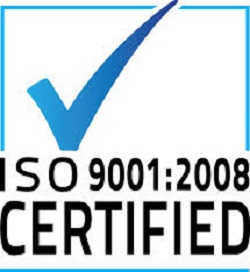


|
|
|
|
What Is a Variable Annuity?
A variable annuity is a contract between you and an insurance company, under which the insurer agrees to make periodic payments to you, beginning either immediately or at some future date. You purchase a variable annuity contract by making either a single purchase payment or a series of purchase payments.
A variable annuity offers a range of investment options. The value of your investment as a variable annuity owner will vary depending on the performance of the investment options you choose. The investment options for a variable annuity are typically mutual funds that invest in stocks, bonds, money market instruments, or some combination of the three.
Although variable annuities are typically invested in mutual funds, variable annuities differ from mutual funds in several important ways:
First, variable annuities let you receive periodic payments for the rest of your life (or the life of your spouse or any other person you designate). This feature offers protection against the possibility that, after you retire, you will outlive your assets.
Second, variable annuities have a death benefit. If you die before the insurer has started making payments to you, your beneficiary is guaranteed to receive a specified amount – typically at least the amount of your purchase payments. Your beneficiary will get a benefit from this feature if, at the time of your death, your account value is less than the guaranteed amount.
Third, variable annuities are tax-deferred. That means you pay no taxes on the income and investment gains from your annuity until you withdraw your money. You may also transfer your money from one investment option to another within a variable annuity without paying tax at the time of the transfer. When you take your money out of a variable annuity, however, you will be taxed on the earnings at ordinary income tax rates rather than lower capital gains rates. In general, the benefits of tax deferral will outweigh the costs of a variable annuity only if you hold it as a long-term investment to meet retirement and other long-range goals.
Caution!Other investment vehicles, such as IRAs and employer-sponsored 401(k) plans, also may provide you with tax-deferred growth and other tax advantages. For most investors, it will be advantageous to make the maximum allowable contributions to IRAs and 401(k) plans before investing in a variable annuity.
|
Join our Linkedin Group
The GAFM ® Board is the 1st Graduate Certification Body to Become Accredited and Certified for: ISO 9001 Quality and ISO 21001 Training in the World. GAFM ® owns the former AAFM ® Certifications and Programs
|

Home About Certifications Board Board Register Recognition Requirements Providers Contact Us Contact Apply AFAPPC GetCertifiedPPC Benefits Chartered Wealth Manager News How To Use Stock Markets Training Calendar FINRA Application Reg. Payments About Old Events CWM Training Program News UBT University Business Technology Saudi Arabia Saudi Arabia - Certification Training Programs 2017 - University Business & Technology CEO Message Chartered Certified Economist Certified Financial Analyst FINRA SEC Chartered Wealth Manager Training Indonesia Malaysia Guides Informa GAFM Guides Jamaica Qualifying Degrees Global Advisors Membership Mission Ethics Governmental Recognition Links Handbook mfm Financial Planner Program Chartered Economist CCO Higher Institute IP List Become Provider Management Consulting Jobs TUV Accreditation CWM Chartered Wealth Manager Terms Financial Analyst Certification Copy of Certification Economics Certification Economics Degrees Management Degrees Finance Degrees Accounting Degrees Exams Renew Certification Awards Sample Honor Society Trademarks Careers Complaint Site Map Mentz George Mentz Lawyer Mentz George Colorado USA Speaker Consultant AFA ® Accredited Financial Analyst Certification CTEP ® Trust and Estate Certification CIPM ® Certified International Project Manager CWM ® Chartered Wealth Manager ® AMA ® Management Accountant Certification AMC ® Management Consulting Certification MMC ® Management Consulting Certification Book






